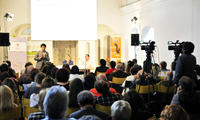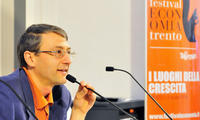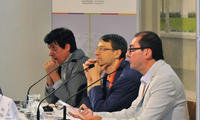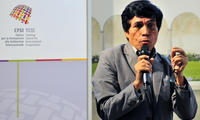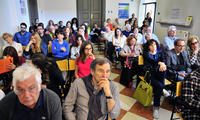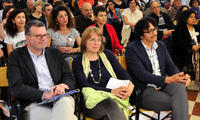
The last sixty years in the history of Colombia have been marked by an internal conflict that has deeply affected every family and community in the country. For years, the country has been known in the world exclusively for the rate of violence and the presence of drug trafficking and narco-terrorism. Against this background, Medellin decided to change through an increased collective awareness of the individual responsibilities. A little less than twenty years ago, discussions involving all social actors were stated: the university, the business community, the church and most of the citizens started to discuss the future development of the city they wanted. Over the years, the proposed strategy grew stronger: the city became a "place of growth", with social investments that enabled to approach and make more habitable those neighbourhoods that used to be off-limits. Libraries, public transport, escalators have made "comunas", usually suited to a regime of death and terror, more liveable and vibrant.
"The name of Pablo Escobar symbolizes a culture where you can reach certain social positions only through violence and erasing rights," said Mario Vargas Sáenz, EAFIT University of Medellin. "In opposition, the figure of Botero represents a different view, open to community and participation, full of desire for justice and cultural growth, reaching out to an educational ideal of awareness and taking on of your responsibilities."
While the city of Medellin is experiencing a real and wide social growth, the Colombian state started to take decisive steps towards the pacification of the country. If the economic growth in Colombia is higher than the world average, very different is the data concerning the growth of human development, said Jairo Agudelo Taborda, from the Northern University of Barranquilla. The size of the conflict contributes to this contradiction. The current peace agreements, which take place in Havana, seem to have finally reached a turning point: moving from war to a state of post-conflict will allow Colombia to increase its human capital and move towards an effective sustainable development? The question remains open, but the coordinates to go in this direction can be represented by the experience of Medellin: focusing on training, education, participation and public policies can be the winning strategy.







